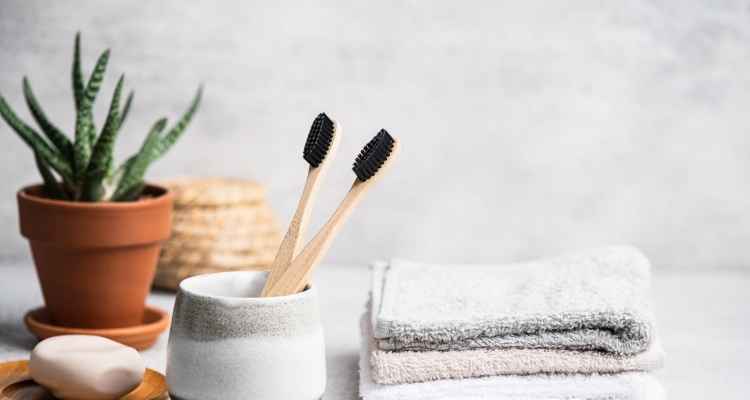Charcoal toothbrushes are becoming an increasingly common sight in bathrooms around the world, but there are promising signs that they’re more than just a passing fad. Charcoal toothbrushes can be an effective all-natural alternative to a plastic brush, and their advantages are backed by science. Here’s everything you need to know.
Breath Freshening
The quickest way to reduce bad breath is to remove the plaque that builds up between your teeth. That’s a task that a charcoal toothbrush is particularly adept at. Charcoal is great at absorbing particles, and it’s especially great at absorbing odors. Chemicals, bacteria, germs, and more are all absorbed effectively by powdered charcoal. That means that it’s not just covering up the odor with a more powerful smell. It’s assessing the root issues that are causing your bad breath.
Teeth Whitening
The same carbon-bonding property that allows charcoal to eliminate particles that cause odors can also help remove stains on the surface of your teeth. It creates a bond with the acidic components in food and drink that stains your teeth, and removes the surface stain even without taking into account the strength of the bristles. The properties of charcoal can also help balance out the pH levels of your saliva. If you want to reduce the risk of your enamel disintegrating, maintaining a proper pH level is vitally important. And it’s not an advantage you’ll find with more traditional toothbrushes.
Bacteria Removal
Charcoal’s effectiveness at bonding with and removing bacteria has a major impact on its ability to create fresher breath, but it’s also an important benefit in its own right. A 2018 study compared the results of subjects who used charcoal toothbrushes to subjects who used a more conventional toothbrush. The results were promising. On average, those who used the charcoal toothbrush had fewer bacteria in their mouth than their counterparts who used a conventional toothbrush. Just as important, these conventional toothbrushes showed two times the number of bacteria – meaning that the potential risk for gum disease and pain continues to linger on the bristles even after the toothbrush was used.
Downsides
Many of the positive impacts of charcoal toothbrushes are anecdotal, and that’s a downside in its own right – but there are increasing studies that indicate a charcoal toothbrush could be a preferable alternative to a more conventional option. But the biggest downside of a charcoal toothbrush is how abrasive it is. The rough and powdery consistency of activated charcoal can wear down the enamel on your teeth. And since enamel doesn’t repair itself, that can result in permanent tooth decay and discoloration. For that reason, many dentists recommend a charcoal toothbrush as a more specialized tool that’s not intended to be used in your daily routine.
The other disadvantage of using a charcoal toothbrush is how messy it can be. The fact that the charcoal comes off as a grainy powder is one of the primary advantages of activated charcoal, but it can also have the negative impact of staining your sink. That can be a huge and unwelcome surprise if you’re using a charcoal toothbrush for the first time, but it’s not terribly difficult to adjust your situation to deal with the issue.
The medical verdict is still out on charcoal toothbrushes, but studies are beginning to show promising results. While you should always exercise caution when trying new products related to your gum and tooth health, activated charcoal has been used in dental products for years. These brushes could be the next major innovation in consumer dental supplies, but they’ll likely serve better as a complement to – rather than a replacement for – a conventional toothbrush.

